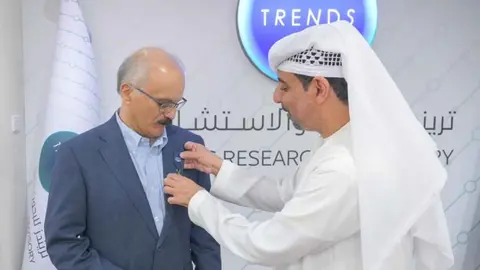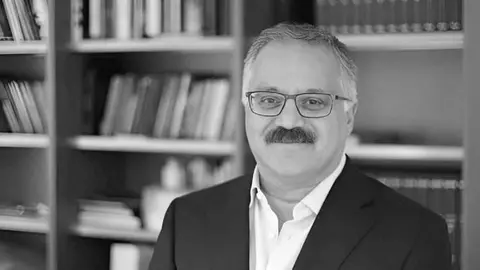Farewell to Dr. Zobaidi, a ‘media icon’ who left a valuable legacy
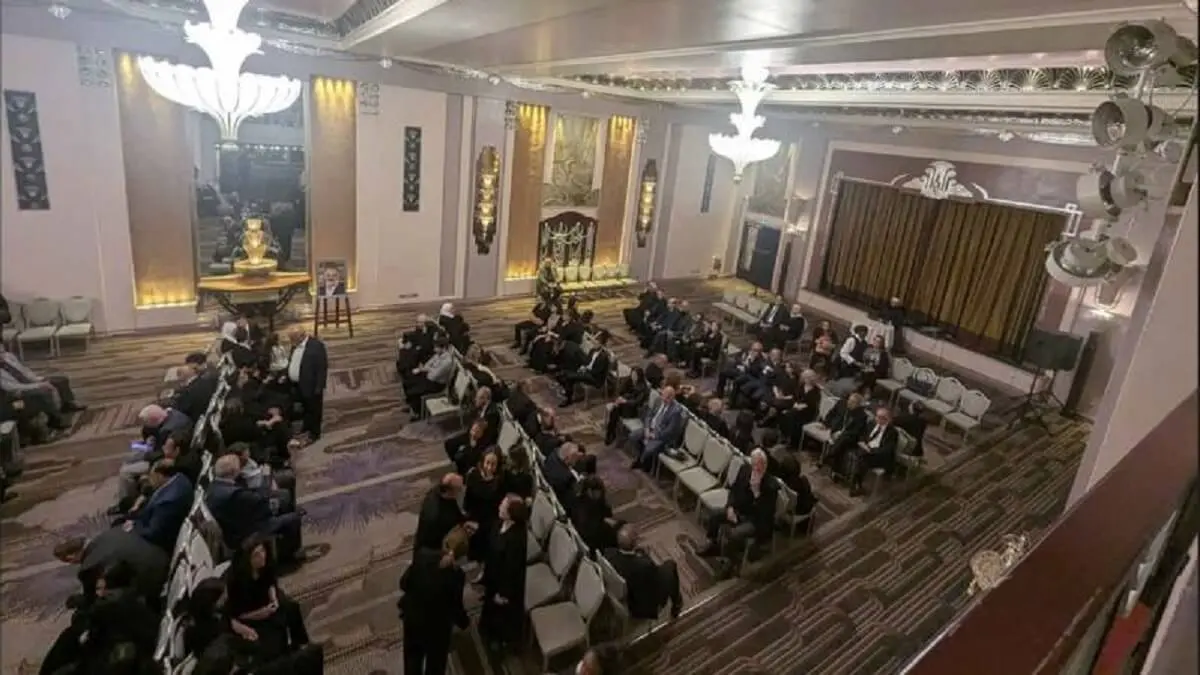
Dr Haitham El-Zobaidi, the late president of Al-Arab publishing house, was buried on Wednesday in London after passing away on Saturday 17 May 2025 in London following a long battle with illness.
Family members, friends, media personalities and several employees of the media group were present at the Eternal Gardens Cemetery to bid him farewell in an emotional ceremony.
The editor-in-chief of Al-Arab newspaper, Mohamed Al-Houni, described the man as ‘a media icon who passed away too soon’ and said that Dr. Zobaidi had left behind a ‘lasting legacy of journalistic, intellectual and humanitarian thought.’
After obtaining a bachelor's degree in Nuclear Engineering from Baghdad University, where he ranked first in his class, Dr. Zobaidi enrolled at Imperial College London to pursue a master's and doctoral degree with a scholarship from the then Iraqi government. However, this scholarship was cut short due to the devastation, blockade and international sanctions imposed on his country following the invasion of Kuwait in the summer of 1990. This forced him to seek work to help cover his living and maintenance expenses.
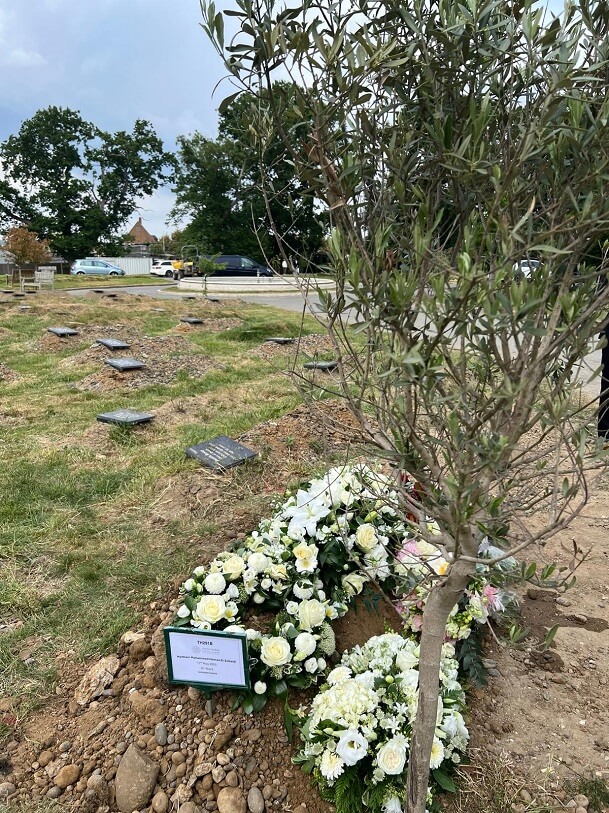
Dr. Zobaidi found this opportunity at the Al-Arab newspaper, where he first joined a large team of editors and journalists as a proofreader, drawing on his great love of the Arabic language and his attachment to the rich literature and heritage of the Arab region.
Although his father, Muhammad Hamza El-Zobaidi, was a senior state official at the time, having been a member of the Revolutionary Command Council and the Regional Command of the Arab Socialist Ba'ath Party, and later Prime Minister of Iraq between 1991 and 1993, his son Haitham relied solely on himself in his work at Al-Arab. In this way, he was a model of self-reliance who projected a glowing image of his family and his country.
During this period, Dr. Zobaidi also contributed to the magazines Banat Hawa and Al-Hayat Al-Siyahiyyah, while simultaneously preparing his doctoral thesis.
In September 2000, Dr. Zobaidi launched Middle East Online (MEO), the first independent and comprehensive online publication in Arabic. The news website's team included several prominent Arab journalists and writers, both based in London and other Western capitals and in their countries of origin.
This initiative succeeded in establishing an advanced media platform in both form and content and paved the way for other initiatives that contributed greatly to introducing the Arab public to online journalism at the beginning of the new millennium.
By 2012, following the upheaval of the so-called ‘Arab Spring,’ the region faced new challenges that deeply impacted Al-Arab Publishing, especially after the passing of its founder, Haj Ahmed Salhin Al-Houni. Amid growing chaos in Arab countries, technological transformations and the rise of electronic media to the detriment of traditional journalism, Dr. Zobaidi and Mr. Houni agreed to merge Al-Arab and MEO into a single institution capable not only of ensuring continuity but also of playing a pioneering role in meeting the needs of the Arab media, while defending enlightenment and contributing to the intellectual struggle against extremist tendencies and the culture of sectarianism and exclusion that was spreading throughout the region.
In September 2012, Al-Arab was launched in its new format, with a modern and sophisticated editorial style. The newspaper featured 24 diverse pages, including sections ranging from politics to culture and investigative reporting, as well as an opinion section.
The main focus was on special journalistic material produced by an experienced team of editors, writers and correspondents in various Arab and Western capitals.
In April 2015, The Arab Weekly, Al-Arab's English-language newspaper, was launched as a progressive platform to spread the moderate Arab perspective to the world. Dr. Zobaidi hoped that The Arab Weekly would become a reliable source of information and analysis for policymakers, researchers and the general public in the West, in order to better understand the Arab region at a time of conflict and uncertainty.
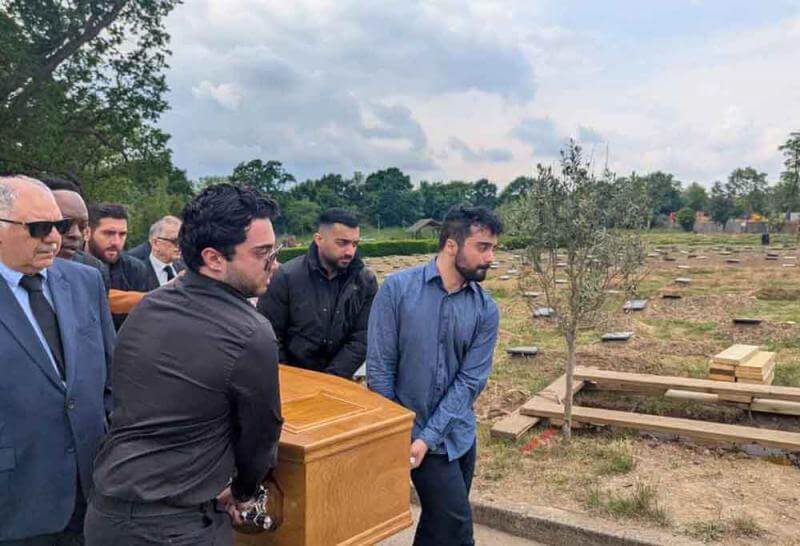
An influential figure in print and electronic journalism, Dr. Zobaidi was mourned after his death by numerous media outlets in the Arab region and described as a mentor and opinion leader.
He leaves behind a valuable legacy, including analyses, opinion pieces and research papers that shed light on the evolution of politics, diplomacy, culture and society in the Arab world.
In his writings, Dr. Zobaidi warned against the dangers of political Islam and other extremist, sectarian and radical ideologies as a threat to Arab societies in the Middle East and North Africa.
Dr. Zobaidi will be remembered as a pioneering figure who helped reshape the region's electronic media and redefine notions of independent journalism.

